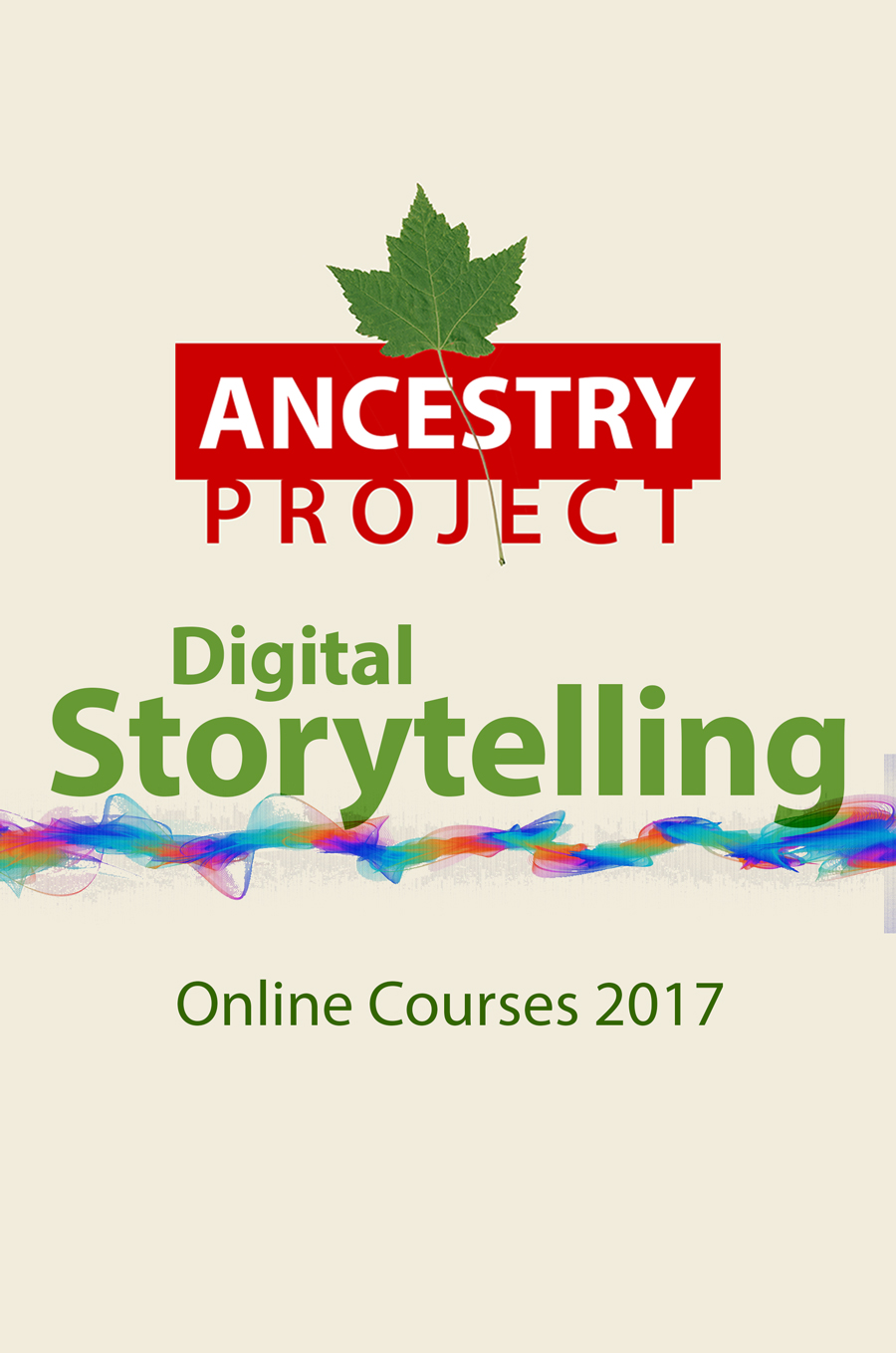Digital Storytelling 2.0 – New Approaches For Digital Media Projects in Education
Digital Storytelling 2.0 – New Approaches For Digital Media Projects in Education
Why Digital Storytelling? Why Mike Simpson and Ancestry Project?
Quick tips and facts about the programDigital storytelling has been around for a while. The Center for Digital Storytelling began in Berkeley California in the late 1990s but trace their roots to education and art movements that originated in the 70s and 80s.
Mike Simpson and Ancestry Project offer an updated take on digital storytelling, hence the tag “digital storytelling 2.0.”
Why take courses and workshops with Mike?
- innovative program: new approaches
- simple but rich tech: use of impactful web technologies
- flexibility: study online or in a workshop
Please read on for more information and to register for Ancestry Project.
Note: As of May 10, 2017, Ancestry Project’s first free course, “Introduction to Digital Storytelling is live and open to new participants. Register to join the course now (free throughout 2017).
What is Digital Storytelling 2.0?
-
website-based format
-
modular, flexible content
-
focus on voice and audio
-
less emphasis on complex video production
Is it time to re-think digital storytelling?
Since the early 2000s many students have benefitted from digital storytelling and media production programs. Tools and ways of working with media have changed.
The world has gone to the web and we should bring our digital stories along with it.
Introducing Website-based Digital Storytelling
There’s been a tendency toward producing video and hosting the video on services like YouTube. That’s worked pretty well. But there’s an argument to be made that digital stories belong on their own websites, where authors can have exacting control over how they appear.
A website can offer an intimate viewing and listening experience. Viewers can be control how fast they scroll. They can linger on pictures, open links to outside content, and be immersed in an experience tailor made for them.
Emphasis on Voice and Audio Recording
It’s important to remember that digital storytelling is about storytelling. The writing and editing process are perhaps more important than the production process. Fancy graphics and video editing techniques are far from required. In fact, they may bog us down.
Technology is amazing these days. We can use portable recorders or USB microphones and capture high-quality voice recordings. While some tasteful music or sound effects may add something, our suggestion is simply to clean up the audio and use volume levelling processes. Let the audio be the main attraction!
